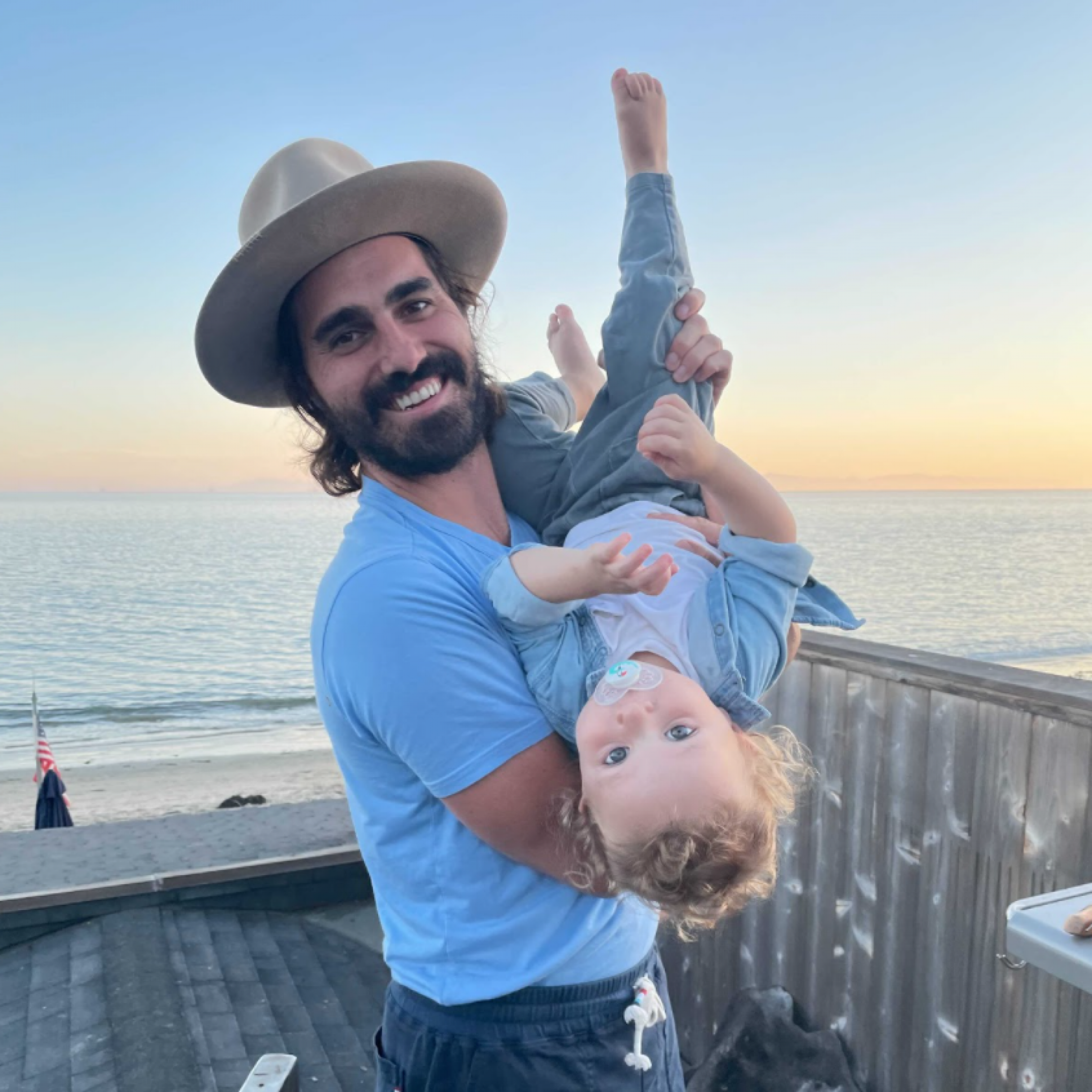Finding Hope in the Japanese Maples
How do you learn to validate your own pain?
Written by Michael Perry

01 Michael Perry and his wife Alex never thought that infertility was something that they would have to deal with, especially as a young and healthy couple.
02 Once they learned they would never be able to conceive naturally, they dealt with the news differently, unsure what a path forward looked like.
03 Michael struggled with how to validate his own pain, hesitant of what he was “allowed” to feel and the role he was supposed to play.
04 However, a trip together to see the changing color of the Japanese Maples changed their perspectives, and they learned how to listen and work together to find a solution. He shares his perspective and his story for others who might be dealing with a similar situation.
After trying to get pregnant for 8 months, my wife started to feel something was wrong. I was convinced she was overreacting. At the time, I traveled a lot for work, and I tried to sell her on the idea that everything was normal. I kept reminding her that we needed to “give it a year” before worrying, regurgitating facts from the dozens of articles I had read to ease my mind.
My wife, wisely, always trusts her gut. She proceeded to book an appointment at UCSF so that we could hear from the experts if there was something we should be concerned about. There are some days in life you never forget. The day of our appointment was one of those days.
Seconds into our ultrasound, my confidence that “all was fine” dissipated. With every click, circle, and measurement the doctor was quietly capturing, it became increasingly clear that my wife’s gut was once again correct.
We all sat quietly in his office as he walked us through the results. Sitting across from him, he gave us the news that we would never be able to get pregnant naturally. In fact, he let us know that it was very possible we would never be able to get pregnant at all, and that if being pregnant was something we really wanted our only chance was IVF.

As someone who barely passed high school biology, I was unsure of what this all meant. I looked over at my wife Alex, and although she put on a strong face in front of the doctor, I saw her shattered spirit sitting there. This was two weeks before her 33rd birthday. I couldn’t help but think, “aren’t we too young to be facing this?” Unfortunately, the reality is that like so many others, we were not.
Alex cried the entire 15 mile drive home. In between tears, she expressed fear that this might be the end of our relationship. Throughout our entire 13 years together, we had talked endlessly about having children, and how excited we were to be parents. For the first time, I was unsure of how to support her, all I could tell her was that I loved her. When we got home, Alex retreated to our room, and I opened up my computer and typed in “IVF.”
I will never forget the silence that surrounded us during that time. We were both so devastated, but I never felt comfortable equating my sadness to Alex’s—how could I? Trying to hide my own sadness made me feel isolated. I wanted to speak to someone about how I was feeling, but part of me thought that since it wasn’t my body, it wasn’t my information to share.
At the time, I was also an executive at a publicly traded company, responsible for a team that spanned across three cities and two time zones. The pressures of trying to manage it all started to compound. I wanted to be there for my wife and for my team, but at no point did I seek out the support that I needed. As I continued to push my own feelings to the back of my mind, I realized that I had stopped showing up for myself and began to see the huge mental toll that that took. I didn’t address or process my own sadness, and it manifested in other ways. As they say, an idle mind is a devil's workshop. Whenever I was alone with my thoughts, it was a pity party and I was the only guest.

In an attempt to help us heal, I surprised Alex with a trip to Japan to see the maple trees turn color. We had always dreamed of going to Japan, but never had the time or money to do so. There’s nothing quite like some devastation in your life to help you take action on the now.
We started in Tokyo, and found our way to beautiful Kyoto. We visited temples, saw sacred spaces, and meditated together. We had laughs over sake and when either of us got quiet, we dealt with some sadness. We lit candles and we said prayers. The pain we had been harboring individually slowly became a team effort.
While having a drink together on the penultimate night of our trip, Alex shared with me that when we got home, she wanted to move forward with IVF. There was a certain level of determination and confidence in her voice that I had never heard before. I felt both grateful and selfish—she was willing to do this for the both of us. It didn’t feel fair, and I didn’t know how or where I fit in in the process.

As a partner watching all of this unfold, there is a certain loneliness that is hard to articulate and awkward to address. While I was there every step of the way, it was very apparent to me that my wife physically did not need me to get pregnant. The journey of creation, in this case, was between a patient and her doctor. Rarely does a week go by where I don’t think about the hundreds of shots and procedures that my wife had to endure, or how she refused to give up after our first miscarriage. Even now, with my 18 month old son tightly in my arms, I feel a deep sense of gratitude and selfishness that I get to experience his love as a result of her physical pain. Why do I deserve any pity for how I felt? Through time, I’ve been able to come to terms with these feelings. I remind myself that our journeys may have been different, but they are both valid.
For so many reasons, I am forever grateful we chased the red maples that Fall, a trip that forever defines family to me. It was in the maples that we allowed ourselves to ask for and receive the support we needed to move forward.
About the author
Michael Perry is the Founder and CEO of Maple, a company focused on building a better world for all parents. Prior to founding Maple, Michael founded Kit, which he sold to Shopify in 2016 and where worked for over four years as an executive overseeing Marketing Technology. He has been included on Forbes’ 30 under 30 list, recognized by Inc. Magazine for his contributions in the messaging space, and named one of the top marketing executives in the world by Business Insider. Michael Currently lives in the Bay Area with his wife, son, and two bulldogs. Website: growmaple.com Instagram Handle: @growmaple
Support our work
We’re on a mission to change how the world perceives mental health.



















